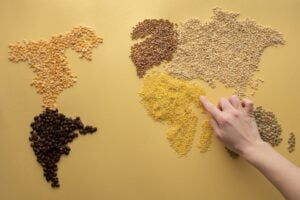High blood pressure, also known as hypertension, affects millions worldwide and is a leading risk factor for cardiovascular diseases. Incorporating natural remedies, particularly herbs and spices, alongside a balanced lifestyle, can be an effective strategy to manage hypertension. This article explores how to lower blood pressure naturally, emphasizing the role of dietary choices, physical activity, and stress management.
Natural Remedies for Hypertension
Oatmeal Porridge and Dietary Fibre
Starting your day with oatmeal porridge is more than just a hearty breakfast. Oatmeal is a rich source of dietary fiber, which helps in maintaining a healthy blood pressure level by improving heart health and aiding in weight management.
Lower Blood Pressure with Less Sodium
Excess sodium intake is a known contributor to high blood pressure. Reducing salt in your diet can significantly lower blood pressure levels. Opt for natural seasonings like herbs and spices to enhance the flavor of your meals without the need for additional salt.
Incorporate Ayurvedic Remedies
Ayurvedic medicine offers numerous natural remedies to manage high blood pressure, including the use of herbs such as garlic, tulsi, and ashwagandha. These herbs are believed to have stress-reducing and antioxidant properties that aid in blood pressure management.
Lifestyle Changes to Support Blood Pressure Reduction
Engage in Regular Physical Exercise
Regular physical activity strengthens the heart, enabling it to pump blood more efficiently, thus reducing the pressure on arteries. Activities like walking, cycling, or swimming are excellent for heart health.
Effective Stress Management
Chronic stress is a significant contributor to high blood pressure. Techniques such as yoga, meditation, and deep breathing can help manage stress levels, thereby supporting healthier blood pressure readings.
Quit Smoking
Smoking cessation is critical for lowering blood pressure and improving overall cardiovascular health. Smoking narrows your arteries and hardens their walls, increasing blood pressure.
Medications and Supplements
While lifestyle and dietary changes are fundamental, some individuals may require medications to control their hypertension. Medications such as ACE inhibitors, diuretics, and beta-blockers are commonly prescribed. Additionally, supplements like omega-3 fatty acids, magnesium, and potassium can support blood pressure reduction. However, always consult with a healthcare provider before starting any new supplement or medication.
The Role of Olive Leaf Tea and Polyphenols
Olive leaf tea, rich in polyphenols, is another natural remedy for high blood pressure. Polyphenols are powerful antioxidants that help in reducing inflammation and improving arterial health.
Essential Oils for Hypertension
Essential oils, such as lavender, rosemary, and ylang-ylang, can have a calming effect, reducing stress and potentially helping to lower blood pressure.
Frequently Asked Questions
Can dietary changes really lower blood pressure?
Yes, dietary changes, especially those that reduce sodium intake and increase the consumption of fruits, vegetables, and whole grains, can significantly lower blood pressure.
How much exercise is needed to impact blood pressure?
The American Heart Association recommends at least 150 minutes of moderate-intensity aerobic exercise or 75 minutes of vigorous exercise each week.
Are there any side effects to natural remedies?
While most natural remedies are safe, some may interact with medications or have side effects. It's important to consult with a healthcare provider before starting any new treatment.
Incorporating natural remedies, lifestyle changes, and, when necessary, medications can effectively manage high blood pressure. A holistic approach, focusing on diet, exercise, and stress management, can help maintain healthy blood pressure levels and improve overall well-being.




